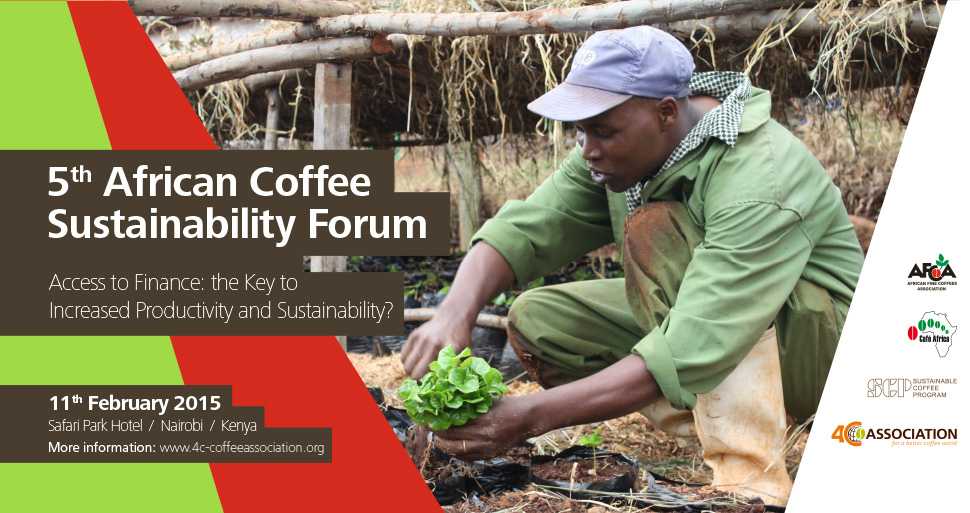In many parts of the world, and especially in Sub Saharan Africa, a productivity revolution needs to take place in the production of agro commodities to satisfy growing global demand.
Coffee is no exception to this and the structural lack of input finance needs to be addressed to make this happen.
The starting point is the realization that there is a gap between the demand and supply of financial products for African coffee farmers. This gap is governed by risks, with often insufficient mitigation instruments.
Therefore, this year, the 5th African Coffee Sustainability Forum held a one-day workshop on improved access to input finance facilities, which proved instrumental in collectively addressing these systemic issues.
The action-oriented finance workshop on 10th February brought together a distinct group of experts from farmer associations, traders, micro-finance and financial institutions, input providers, social lenders, sustainability standards, and donors.
They examined risk perspectives and mitigation measures on input finance facilities, drawing on international best practices and the findings of a study by the International Coffee Organization (ICO).
The outcome of the workshop, a set of concrete action items and generic collaborative models of risk mitigation for short-term input finance.
These actions can, in combination with other ongoing measures to improve the productivity and sustainability of smallholder coffee farmers, be applied and scaled in multiple African countries.
One of the workshop’s organizers, Ian Lachmund, Project Director of the Coffee Partnership for Tanzania (managed by DEG – Deutsche Investitions- und Entwicklungsgesellschaft mbH) complements these promising results: “the interest already shown by many of the stakeholders present signifies a very strong potential for the various models of input finance developed at the workshop to be rolled out at a country or regional level”.
Ted van der Put, Director at IDH, The Sustainable Trade Initiative and co-initiator of this event as chair of the Sustainable Coffee Program concluded after the meeting: “It became more clear than ever for me that access to input finance can be solved addressing two challenges: how to engage the marketing agent (exporter, trader) and how to share the input finance risk in the value chain between producers, trade, input providers and roasters?”
The 5th African Coffee Sustainability Forum
The outcome of this workshop provided a stimulating base for the 5th African Coffee Sustainability Forum the following day.
Through expert panel sessions, interactive presentations and working groups, and with over 160 participations, the forum explored a range of inclusive finance models and the role access to finance can play in increasing productivity and sustainability.
Offering a unique opportunity for coffee stakeholders to provide their input into addressing and collectively devising solutions that will benefit all members of the coffee supply chain.
In the General Meeting there was a proposal to further explore the topic of financial literacy for farmers. Commitment to this topic was echoed in the keynote speech of Roland Weening, President Coffee of Mondelez Europe, when he said “coffee farming needs to become more attractive to the next generation, and (through the Coffee Made Happy program) we will support coffee farmers to become coffee entrepreneurs by helping them run profitable, sustainable and respected businesses”.
Apart from the need for financial literacy training, the importance of enabling more smallholder farmers to build capital was flagged. Entrepreneurial farmers will take advantage of more favorable financial products, thus allowing them to grow their business and increase productivity.
According to Mauricio Galindo, Head of Operations at ICO, “the forum was vital to the future of the African coffee sector as it brought all the relevant actors to collectively address the systemic issues of productivity, access to finance and increased public-private collaboration – all of which are critical elements to the sustainability of the coffee industry”.
Final reports, speaker presentations and follow up information shall be made available at www.4c-coffeeassociation.org and www.sustainablecoffeeprogram.com.
The next African Coffee Sustainability Forum is set to take place in Dar es Salaam, Tanzania in February, 2016.


















